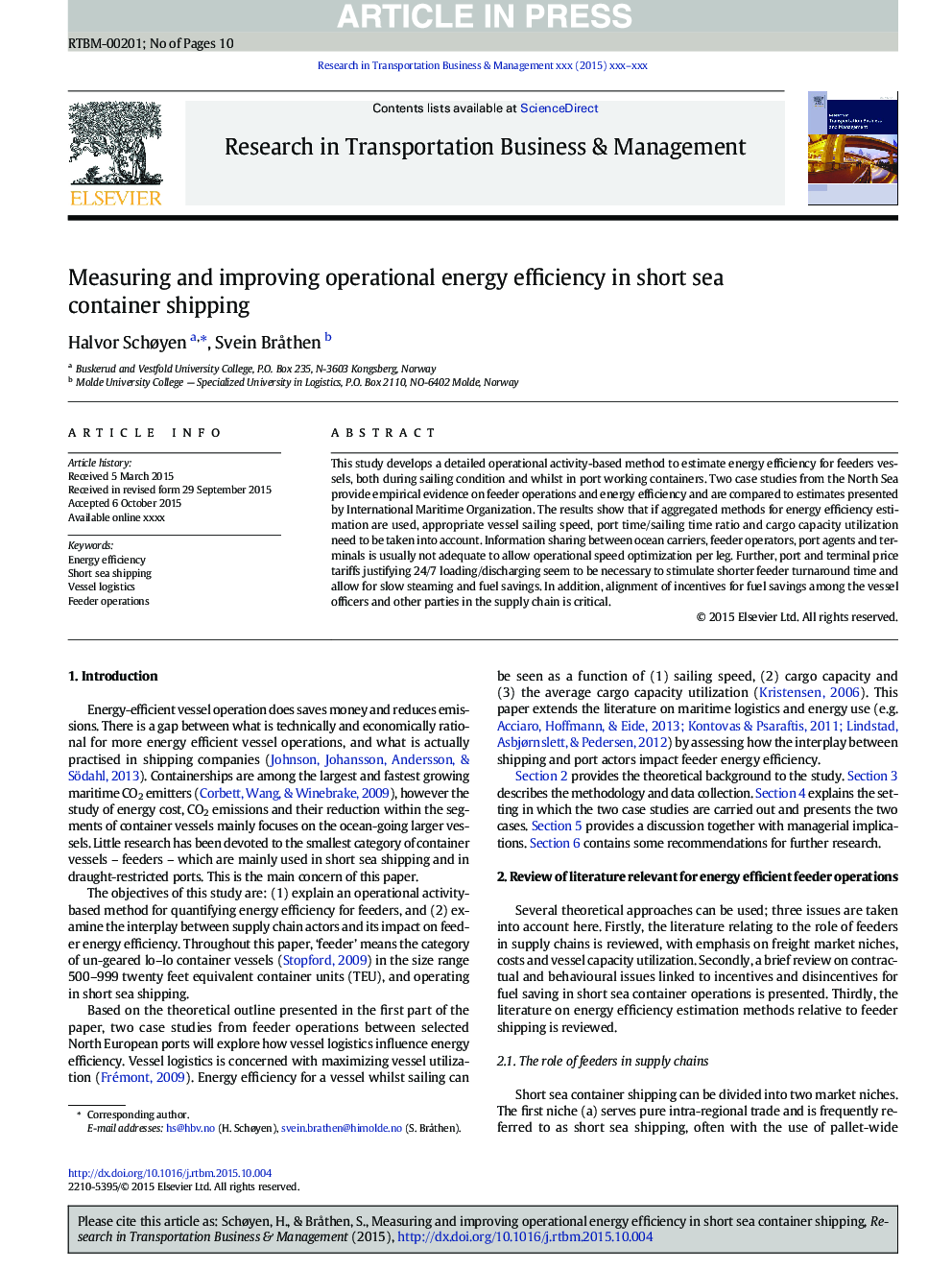| Article ID | Journal | Published Year | Pages | File Type |
|---|---|---|---|---|
| 7410312 | Research in Transportation Business & Management | 2015 | 10 Pages |
Abstract
This study develops a detailed operational activity-based method to estimate energy efficiency for feeders vessels, both during sailing condition and whilst in port working containers. Two case studies from the North Sea provide empirical evidence on feeder operations and energy efficiency and are compared to estimates presented by International Maritime Organization. The results show that if aggregated methods for energy efficiency estimation are used, appropriate vessel sailing speed, port time/sailing time ratio and cargo capacity utilization need to be taken into account. Information sharing between ocean carriers, feeder operators, port agents and terminals is usually not adequate to allow operational speed optimization per leg. Further, port and terminal price tariffs justifying 24/7 loading/discharging seem to be necessary to stimulate shorter feeder turnaround time and allow for slow steaming and fuel savings. In addition, alignment of incentives for fuel savings among the vessel officers and other parties in the supply chain is critical.
Keywords
Related Topics
Social Sciences and Humanities
Business, Management and Accounting
Business and International Management
Authors
Halvor Schøyen, Svein Bråthen,
